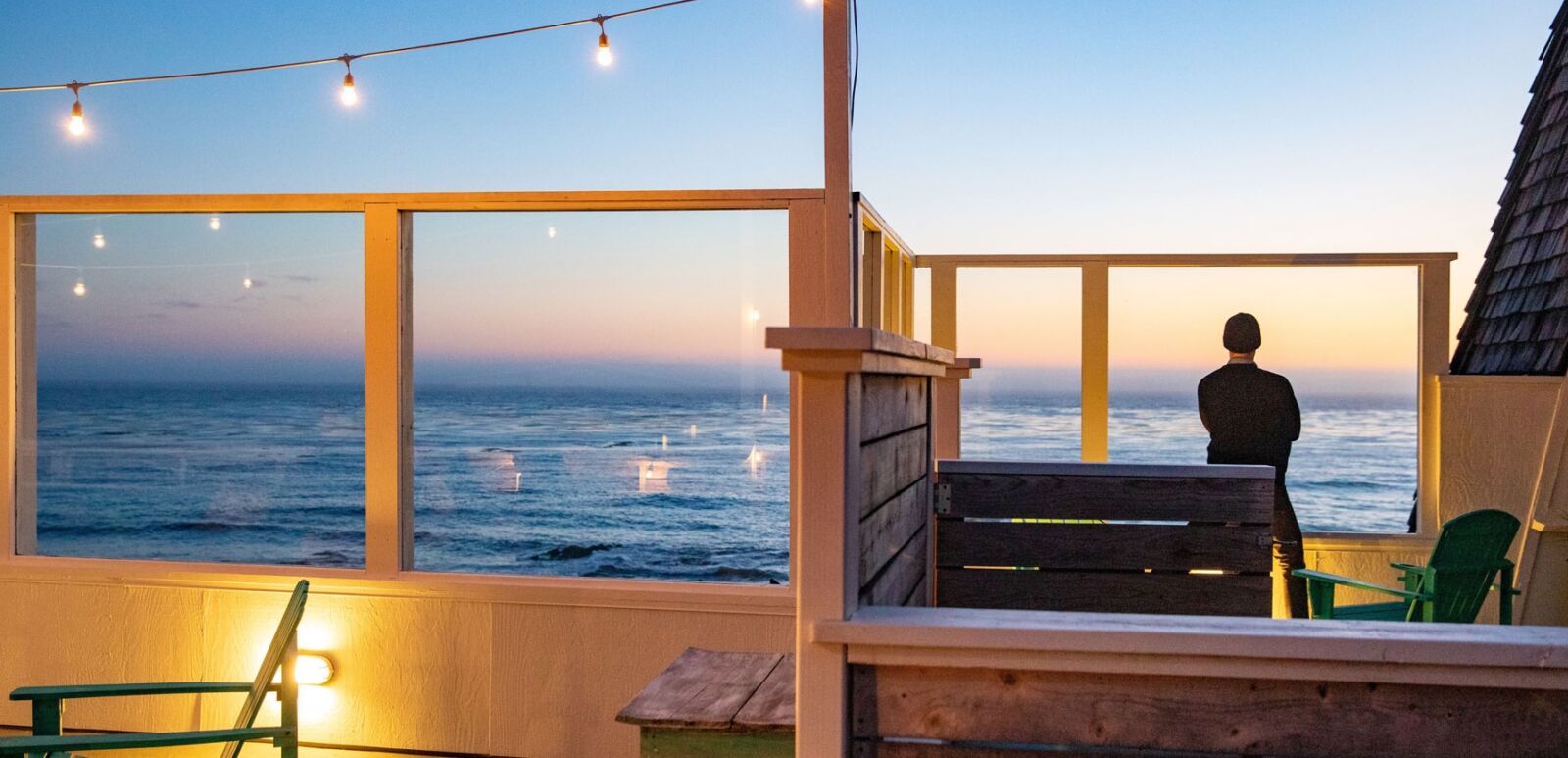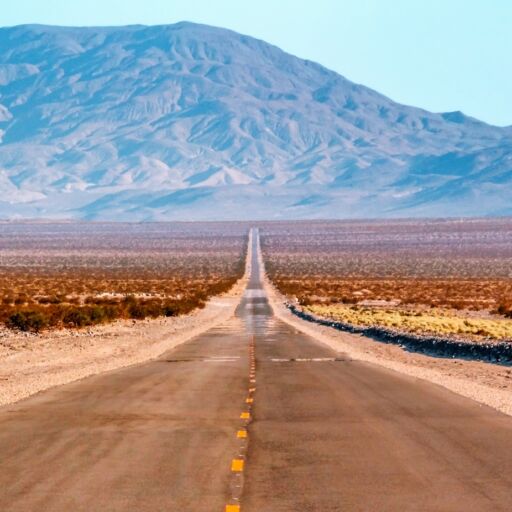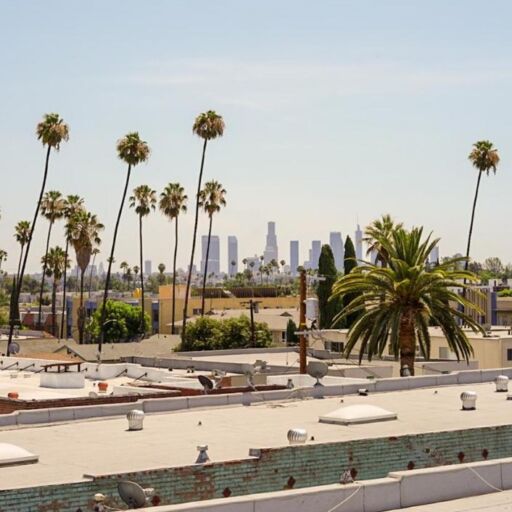You wouldn’t know it driving through the coastal college town of San Luis Obispo, Calif., but it’s home to the world’s first motel. Where U.S. Highway 101 used to ramble through town, you’ll find the remains of the Milestone Mo-Tel, a Spanish mission structure that played a big part in American travel history.
In 1925, architect Arthur Heineman saw the rise of automobile travel and opened a hotel catering to motorists halfway between Los Angeles and San Francisco. The motel, later renamed the Motel Inn, was a collection of bungalows outfitted with private garages, and geared at splitting up the then-two-day drive across California in scenic SLO.
The Great Depression and waves of competition eventually ran the Motel Inn into the ground, and by 1991 it completely closed. Plans for its restoration have stalled, but along the Pacific Coast Highway and US-101, a string of other old motels are refashioning themselves, creating a distinct, new collection of upscale boutiques, and returning character and local flair to the iconic L.A.-to-S.F. road trip. It seems only appropriate that the place that gave the world the motel is on the cutting edge of its comeback.
Motels “rooted in the local”
“These motels give you a different experience everywhere you go, a more local experience,” says David Katz, the General Manager at River Lodge in Paso Robles, Calif. “You could stay at a (chain hotel) in any city along the way, and it’s the same experience. Stay here, and it’s more rooted in the local.”

The hotel Katz oversees is a sunny, 1940s motor lodge right up against Highway 101. It opened in May with 28 rooms surrounding a sparkling turquoise swimming pool and an indoor/outdoor poolside bar serving light California-Italian cuisine. The parking spaces where motorists once pulled up to their rooms have been converted into grassy front yards hung with tufted hammocks, and a new retaining wall blocks out all the noise from the highway.
It’s the latest project from Nomada, a California-based hospitality group responsible for the reimagining of seven motels along the coast. They specialize in finding distressed or under-utilized properties, Katz says, and reinventing them. Design elements are sourced from as far away as Morocco, and as close as downtown Paso Robles. All of the properties are teeming with personality.
Not far from the River Lodge sits the Farmhouse, also owned by Nomada. The 26-room hotel maintains the old bungalow feel from the roadside inns of yesteryear. Small, semi-detached cottages sit around fire pits and a short main driveway. Whitewashed walls and oversized king beds fill the rooms, where Smeg refrigerators contain local drinks and snacks from the heart of wine country. The lemon-themed décor extends into the lobby, where guests can have a daily breakfast of fresh croissants in the hotel’s outdoor garden. It’s all in a footprint that’s barely larger than a gas station.

“I love Paso Robles, I grew up here, and I want people to love it as much as I do,” Katz says, serving double duty as General Manager at the Farmhouse, too. “We want to find everything Paso Robles has to offer and put it right here in the River Lodge or the Farmhouse, and I think that’s what Nomada does so well.”
Nomada’s crown jewel is the Skyview Motel near Los Alamos, a 1955 midcentury motel atop a hill above the highway. Its 21-and-over pool looks a little like a Slim Arons photo shoot, with an oversized “MOTEL” sign, written in black, Saloon-style font on a yellow background, towering above the pool deck. The pool’s walk-up bar is also the bar for the onsite restaurant Norman, which keeps the motel’s southwestern motif both in its menu and décor. The panoramic view from the check in desk over the rolling California hills makes the Skyview feel like a motel suspended somewhere in the heavens.
The return of the mom-and-pop innkeepers
While Nomada’s vision has created destination hotels throughout the California coast, the old-as-new ethos isn’t limited to companies with big investors. In tiny Cayucos, Calif. near Morro Bay, Ryan Fortini and his wife Marisa are putting a California twist on the mom-and-pop innkeeper tradition at their 19-room Pacific Motel.

Fortini looks every bit the ageless surfer, decked out in board shorts, sunglasses and baseball cap, with a deep tan and salt-and-pepper five o’clock shadow. He holds court every day at the motel’s “therapy table,” a large dining table in the check-in area where he says guests naturally gravitate to drink local beers and Central Coast wine from the lobby’s glass cooler.
In a former life, Ryan was a landscape architect and Marisa was an interior designer. And though they’d never set out to be “hotel people,” a fortuitous bike ride turned these longtime residents into celebrated local hoteliers.
“One day we were riding our bikes, and this place was a dilapidated piece of shit. And so we stopped in and (asked) the owner, ‘Hey, did you ever think about selling?’” Fortini recalls. “At first it was just a little side hustle and we thought we were putting lipstick on a pig. Then we started working on it, and it just got bigger and gnarlier. Then Covid hit and it just became a full blown, major renovation.”
Three years and thousands of work hours later, the Pacific Motel opened to great acclaim, giving the little beach town a cool, modern hotel complete with an airstream bar and firepits. The rooms are mostly old bungalows connected through common roofs, each one with vaulted wood ceilings that make it feel like your own little beach house.

For Fortini, the joy has been in bringing something special to his hometown, where, like Katz, he can share his city with people from all over the world.
“We’re creating a place to educate people about the Central Coast, and all the rad shit that goes on here,” he says proudly. “It’s a cool place to talk, and I think with a mom and pop like this it doesn’t get diluted, everything is insightful, intentional.” To wit, Fortini purposely adorned his motel’s walls with works from local artists, and sells many of their creations in the lobby gift shop.
Distressed family-run properties present opportunity for investors
So why, after decades of dilapidation, are investors both large and small upcycling the motels along California’s coast? Theories abound, but the pandemic may have played a role.
“We had Covid, which particularly ran down some smaller businesses,” says Katz. “With Farmhouse, I know that owner had just burned himself out during that time. He worked himself through the bone. He was like, ‘Hey, I’m selling,’ and that was the opportunity for Nomada to get in.”
Nomada isn’t the only hospitality group who’s seen big potential in old motels. In swanky Carmel, Calif., a group of investors who formerly managed assets for Kimpton Hotels & Restaurants found an underwhelming Holiday Inn and transformed it into the Carmel Mission Inn, giving the 1970s hotel new life with local art and bamboo floors.

Down the coast in Cambria, Calif., the White Water Inn took over an old bed and breakfast across the street from the ocean, merged it with an existing motel, and created a small luxury resort, where every day starts with ocean views and a picnic basket of pastries delivered to your door.
“Smaller inns tend to be family-run businesses, so they might not have the capital for rebranding and redesigning,” says Kevan Beall, White Water’s General Manager. “So, we found we could take these older properties and totally renovate from the top down, and create this intimate experience with guests.”
The same group that owns Whitewater also runs the Cambria Beach Lodge, not far away on Moonstone Beach Drive. The 1930s motel is made of little casitas that were strung together over time. It’s one of the few upcycled motels that maintained its drive-up parking spaces and offers a sky deck. Guests can grab a local beer from the lobby, head upstairs, and hang out on the deck as they look out over the ocean. Both properties sit down the street from the granddaddy of rehabbed motels, Oceanpoint Ranch, giving Cambia perhaps the largest concentration of boutique motels on the coast.

“There’s so much character here in Cambria, all the businesses being independently owned and operated,” says Beall. “Usually the proprietor, they’re the one who said, ‘I want to do my passion project here in Cambria, because I can do it uniquely.’ And it’s amongst this cool little charming village of artists and other unique businesses.’”
The California Coast isn’t the only place turning old motels into cool boutiques, and you’ll find examples of it everywhere from Arizona to upstate New York. In California, however, this new crop of proprietors have remained particularly faithful to local culture, considering the motels’ histories and how, newly renovated, they can be a megaphone for their communities.
“You’ll get something different every single place you stop,” says Katz. “More and more people are moving away from box chains. People like the hotel experience, but there’s a uniqueness they want, and the time is just right.”




